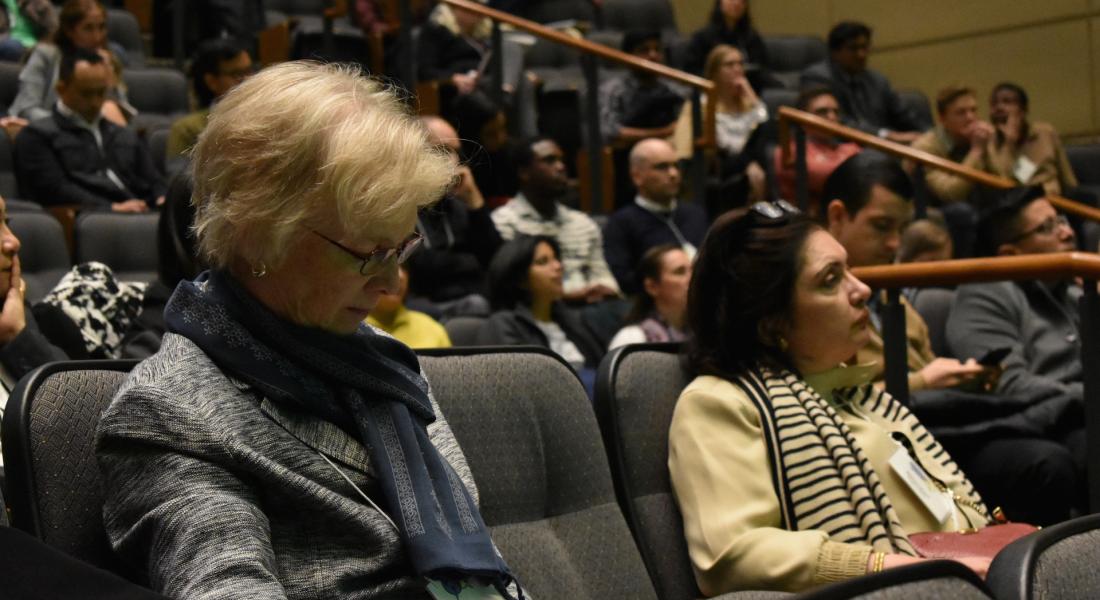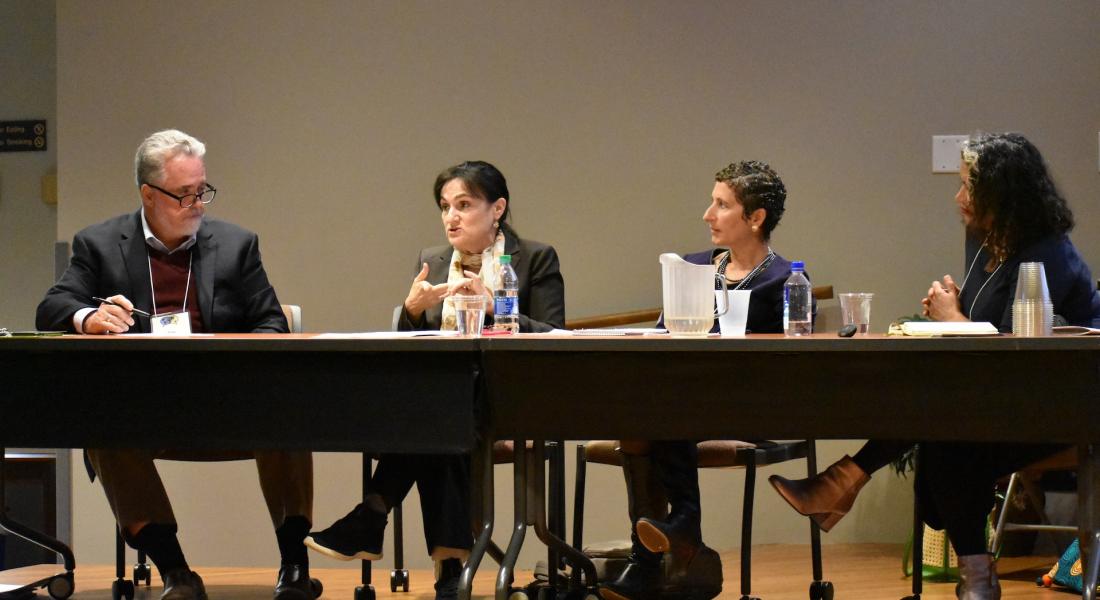Those who study development and those who try to put development principles in practice on the ground don’t often get the chance to compare notes.
But a major sociology conference at the University of Notre Dame recently brought together scholars and practitioners for a rare chance to talk about their work and research on a range of development-related topics.
“We don’t get this opportunity very often. This is one of the only academic conferences where we can have that dialogue with practitioners,” said sociologist Tamara Kay, one of three faculty fellows at the Kellogg Institute for International Studies who organized the American Sociological Association’s 8th Annual Sociology of Development Conference, held Oct. 17-19. Kay is an associate professor of global affairs and sociology at the Keough School of Global Affairs.
Kellogg and the Institute for Scholarship in the Liberal Arts (ISLA) were lead co-sponsors of the event, titled “Development in Dialogue: Engaging Practitioners and Across Disciplines.” Nearly a dozen other units at Notre Dame, including several within the Keough School, supported the conference.
Faculty Fellow and conference co-organizer Erin McDonnell, an assistant professor of sociology, said organizers purposely chose the theme of dialogue because it highlights a strength of Notre Dame and in particular, Kellogg and the Keough School: the ability to foster cross-disciplinary discussions on important topics.
The conference gave scholars who want the world to be a better place the chance to collaborate with practitioners, who often don’t have the luxury of time to delve into scholarly findings.
“This conference helps us think about how we can better meet in the middle,” McDonnell said.
More than 200 participants took part in the event, which drew development practitioners from the World Bank, Oxfam, the Millennium Challenge Corporation, and the Institute of Development Studies.
Sessions addressed a range of issues, including education and inequality, global health, household work and consumption, authoritarianism, Puerto Rico’s future, and activism and social movements.
Other co-sponsors of the event were the Department of Sociology; the Eck Institute for Global Health; the Environmental Change Initiative; the Ford Program in Human Development Studies and Solidarity; the Gender Studies Program; the Kroc Institute for International Peace Studies; the Liu Institute for Asia and Asian Studies; Notre Dame Initiative for Global Development; and the Keough School for Global Affairs.
McDonnell said hosting the conference brings visibility to Notre Dame and its work, and expands the University’s reputation as a place to do research in disciplines like sociology that aren’t traditionally associated with development.
Nearly 20 Kellogg Institute faculty fellows and affiliated graduate students presented at the conference. Among them was Faculty Fellow Ann Mische, an associate professor of sociology and peace studies who spoke at the plenary session on the link between political protest and the rise of far right populism in Brazil and around the world. She was also a conference co-organizer.
She said the conference showed the “richness” sociology offers to the study of development: comparative perspectives, a focus on social contexts, culture and institutions, attention to dynamic interactions over time, and the use of a range of methodologies.
And, she said, Notre Dame was an obvious choice to host it.
“There are so many ways in which development is addressed in different units and in different ways at Notre Dame. You can just see from the coalition of units that contributed in supporting the conference how much interest and expertise there is in this issue,” she added.







